Which digital marketing disciplines should you bring in-house?

By Nate Wood|12 Dec 2019
If you’ve made the decision to bring all or some of your company’s digital marketing disciplines in-house, you may be wondering which activities to leave in the hands of agencies and which to hire your own experts for.
We have listed 11 digital marketing functions, identifying those that are easier to in-house and those that are more difficult, or where there is less benefit to doing so.
Looking to bring your digital marketing activities in-house?
Technical SEO
Technical SEO ensures that your website has every opportunity to be displayed near or at the top of the search engine results page. Site speed, page structure, information architecture, URL structure and redirects all form part of this.
Much of this work is cyclical, carried out every month using third-party software to crawl your website and monitor search engine visibility. Search engine algorithm experiments produce natural fluctuations in search visibility, so observing it more frequently can lead to false impressions of performance.
It is difficult to find experts who are able to implement the many changes and tweaks needed on a month-to-month basis. People with the perfect blend of technical competencies are rare and talent is often snapped up by agencies.
Because of this, technical SEO is not typically managed in-house. It is also unlikely to require a full-time resource, so the benefit of in-housing it is low.
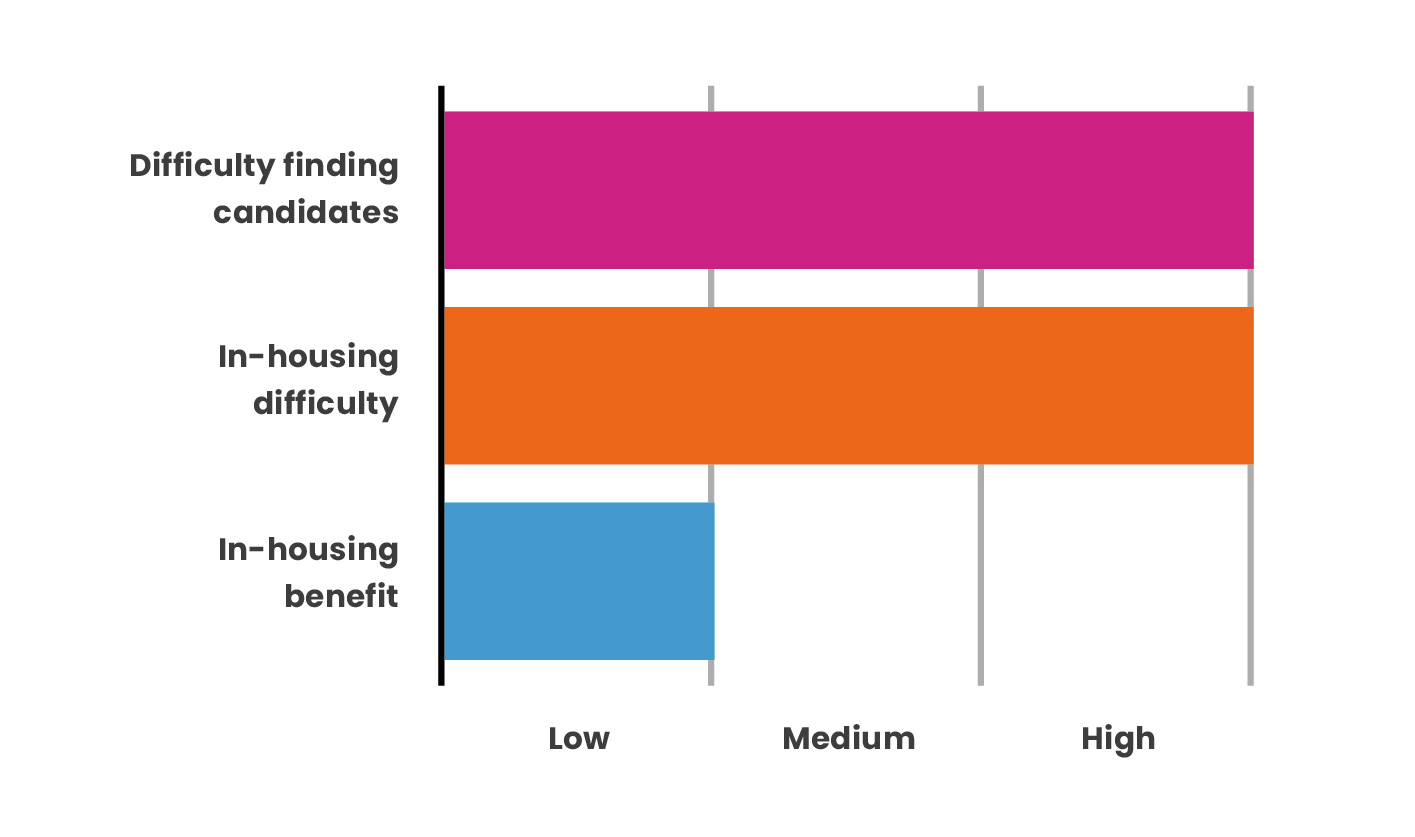
Paid search
Paid search, or PPC management, covers the activities required to display ads on search engines, using platforms like Google Ads and Bing Ads.
Paid search management is a time-consuming and daily task, and it can also be fairly cheap to run in-house. The basic set of software (including AdWords Editor and Bing Ads Editor) is free.
Paid management software like Marin, Doubleclick, Acquisio and Kenshoo offers additional functionality and isn’t prohibitively expensive, as it costs around 1.5 to 5% of managed media spend.
Because paid search is a very process-driven activity, the basic skills are easy to pass on. In a larger organisation, there is likely to be a PPC manager or executive dedicated to managing this channel, but in a smaller company, it could be merged with digital advertising and paid social.
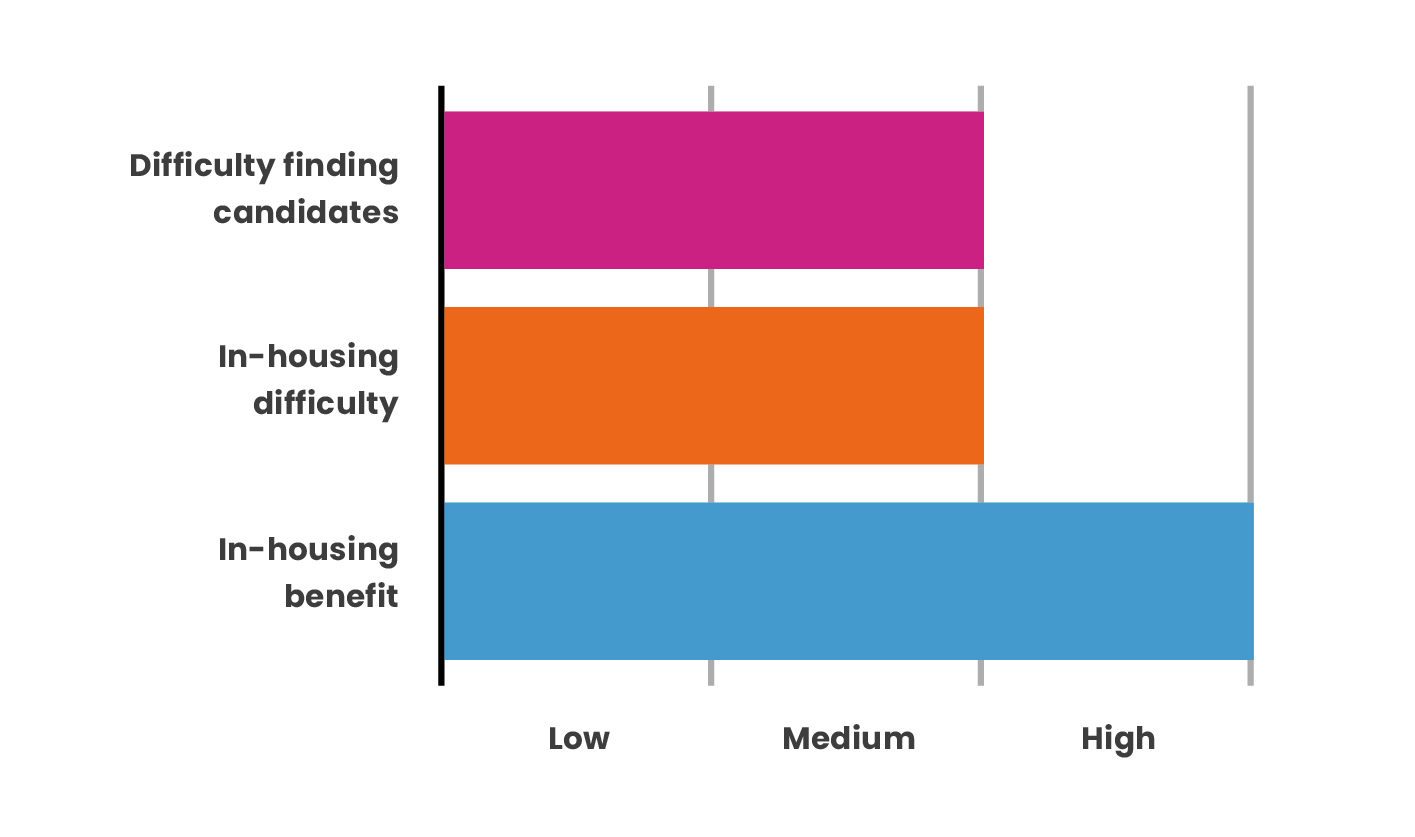
Content
Quality content is essential in the modern digital marketing mix. The content umbrella covers activity critical to SEO, where content on your own website and third-party websites generates links and a flow of relevant visitors.
While some content will be produced as a reaction to news, most content is part of a defined content strategy, encompassing use of owned and earned media. It often sits together in one role with organic social, and with technical SEO training, it is possible to deliver a holistic in-house job function that looks at the website as a whole.
As it’s an ongoing and daily activity, involving both production and promotion, it is often brought in-house. Work is continually happening and the people who create your content should live and breathe your brand values.
Many businesses adopt a hybrid model for content, combining their in-house function with support from an agency to advise on strategy, for example.

Organic social
Social media is live, always-on, proactive and reactive. It’s the voice of your brand. Communications delivered through social media must be genuine - you won’t get away with anything less.
Relying on an agency for social media makes it harder to maintain brand authenticity. The content will always be second-hand and might come too late.
Social analytics and scheduling can help you engage with and manage your social community, identify content performance trends and help you strategise more effectively.
Organic social activity overlaps with overall content and can be merged with both this and paid social in one in-house role.

Paid social
Paid social isn’t a quick win; it requires careful planning, audience segmentation and clever application of content. It should be an extension of your overall social strategy.
Self-service paid social advertising is relatively easy and the skills required to manage it are the same as for other digital advertising channels: strong numeracy and the ability to identify when to apply defined processes to optimise performance.
Paid social isn’t normally a full-time role within an in-house team for all but the biggest organisations, but it lends itself to being coupled with PPC or overall social management roles.
It is typically managed weekly rather than daily, though if budget is spent on a daily basis regular performance checks are required.
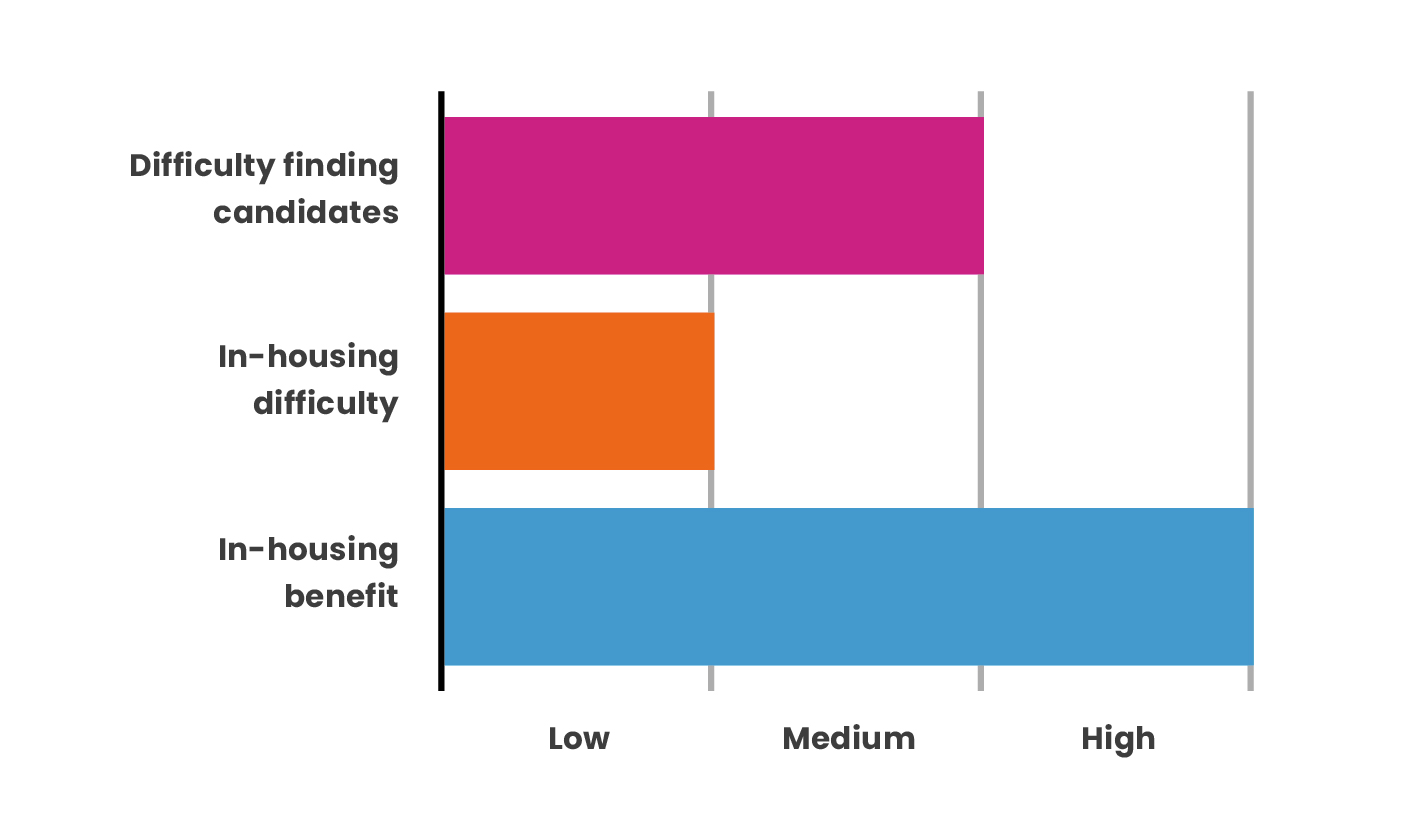
Digital advertising
Programmatic buying has impacted the digital advertising space significantly. Sophisticated display advertising requires a DSP (demand side platform) and the ability to use advertising and publisher networks.
If you have these, and you are able to experiment with creative, you’ll feel the benefits of bringing digital advertising in-house. But designing visuals can be tricky and it’s often outsourced at considerable expense. We recommend looking for high-quality but cost-effective solutions to design the desired creative.
Agencies typically have a minimum monthly media spend of £10,000, and usually charge a percentage of this as a fee or roll their costs up into the CPM rate. By in-housing your digital advertising, you can save on agency fees and avoid minimum spend requirements.
You’ll have to shell out on technology if you want to go beyond the Google Display Network, but in-housing digital advertising can work incredibly well as long as you learn from your campaign performance, test multiple creative variants and continually optimise.
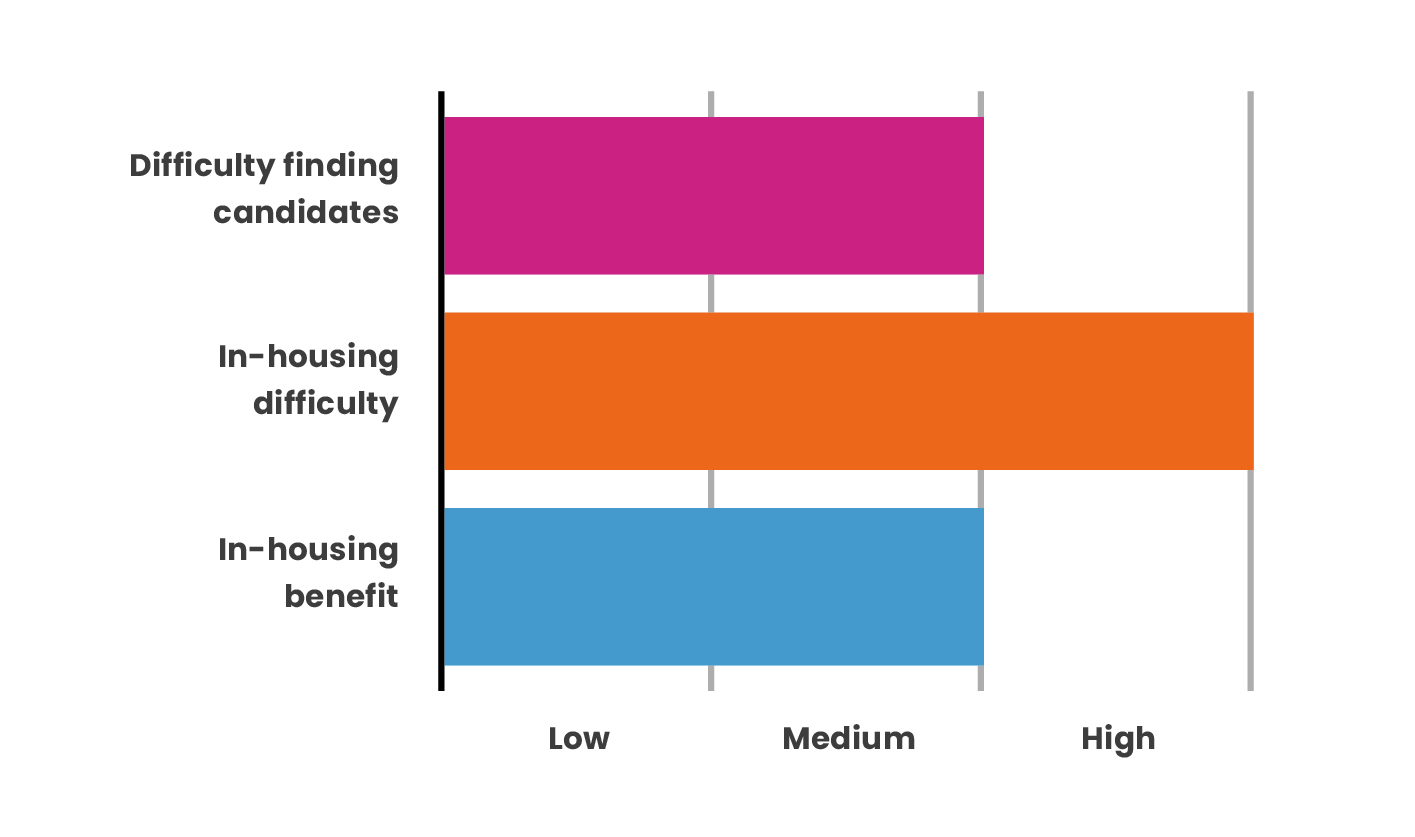
Many businesses already manage their email marketing in-house. The abundance of cost-effective email marketing technology and the natural in-house ownership of customer data makes running email activity in-house is very straightforward.
Personalisation is now high on the agenda for brands, as things move away from one-to-many messages towards bespoke, one-to-one emails.
This is where a developed and customer-centric content strategy can come into its own. Your audience doesn’t always want to receive the same blast messages or news about your company; they demand more relevant communication.
When done well, email can generate good quality feedback data that can be used to inform activity across other channels. It can also give you measurable return on investment.

Data analytics and reporting
Businesses are now, more than ever, able to generate, process and interrogate their own data. Thanks to big data, marketers can use customer insights and performance data to refine digital strategies, enabling in-house teams to deploy tactics in real time.
This ability to pull data and apply actionable insights quickly is incredibly powerful, even more so when combined with data verification, correct Google Analytics set-up and regular health checks - which often require agency support.
A sub-par data set-up can lead to incorrect assumptions about performance and user behaviour, ultimately leading to incorrect strategic decisions. Big data requires some heavy technical capability, and because data is used monthly, it often doesn’t warrant in-house resource.
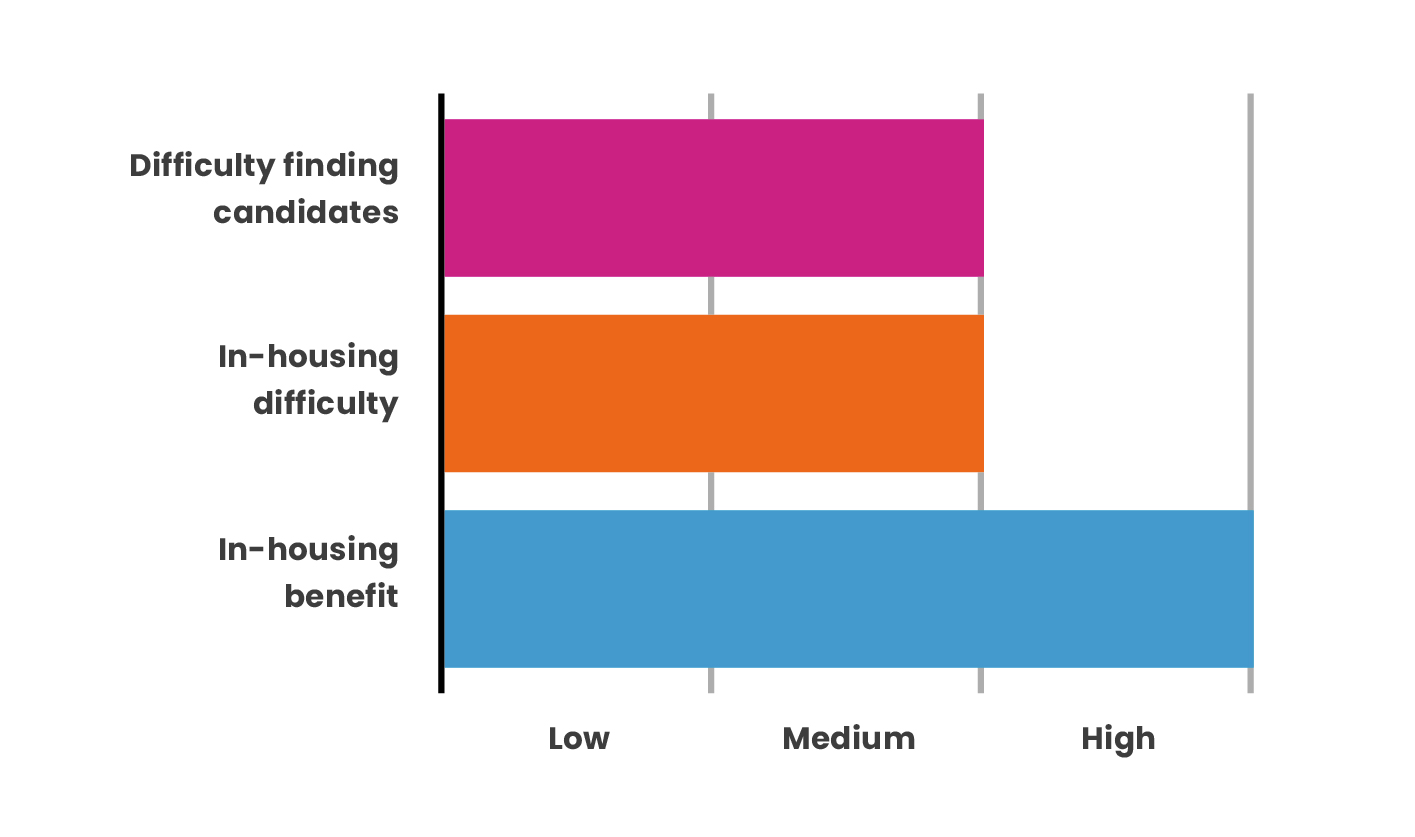
Web development
Experience tells us that around 60 to 70% of businesses in-house their web development. For many organisations, the volume and frequency of technical changes make it worth it.
It’s usually smaller companies, making changes so infrequently that in-house resource becomes unnecessary, that use development agencies for ongoing technical website and app support.
How your organisation uses the website is an important factor. Is the content management system (CMS) easy enough to manage, update and develop in-house? Does your business have ownership rights? Does your platform need to integrate with third-party or in-house business systems, either now or in the future?
Before in-housing your website development, we recommend seeking expert support and advice, particularly when scoping out levels of activity.

Creative and design
Creative and design can cover a range of disciplines, like user experience (UX), user interface design (UI), ad and content creative, video production, web design and app design.
The creative and design function lends itself well to being in-housed, depending on the frequency and use of each sub-discipline. Businesses with a well-established digital marketing hub, including email and web development, will have an in-house creative and design team.
They can get involved with website design requirements, email templates, digital advertising creative and any other visual collateral required.
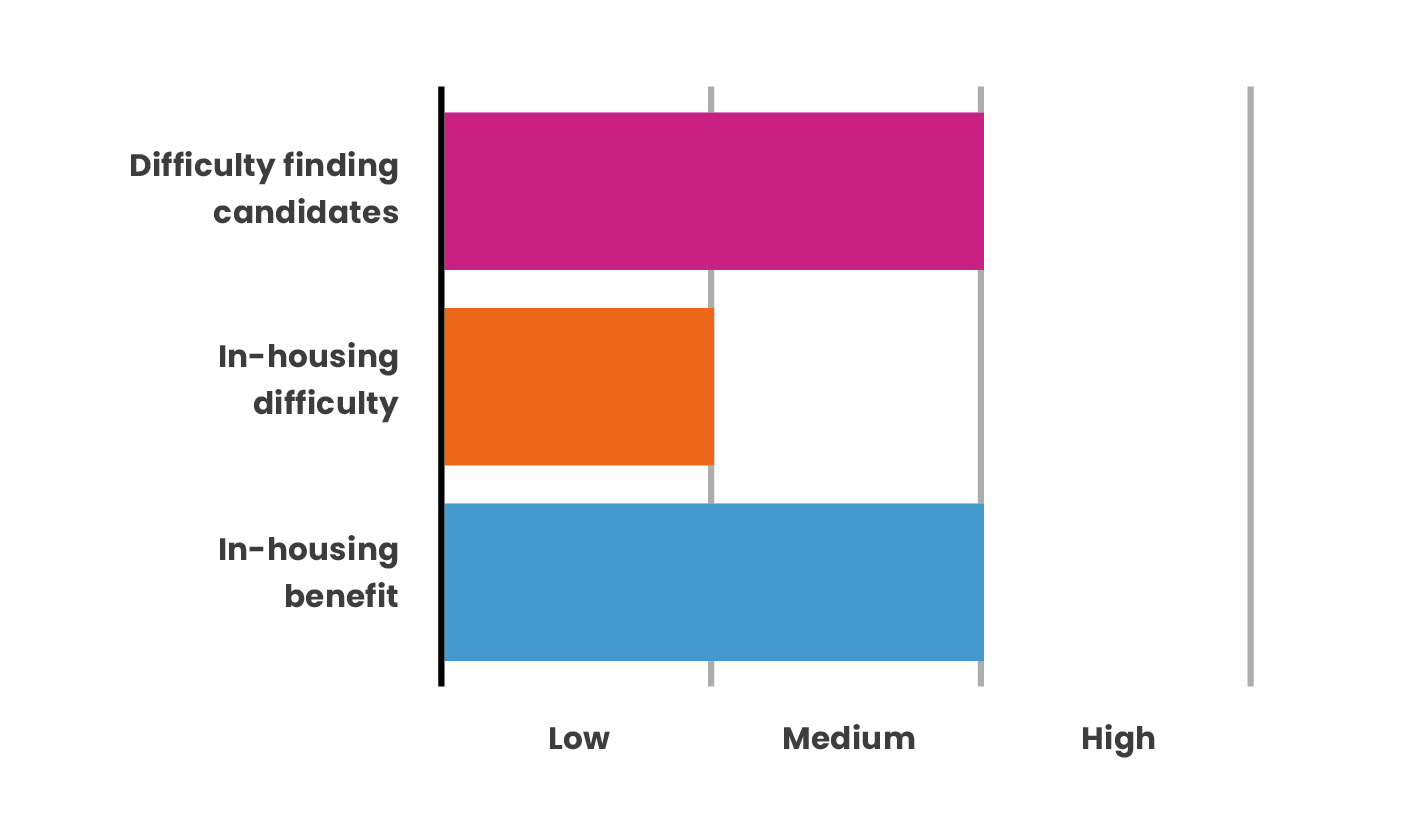
Conversion rate optimisation (CRO)
The role of the CRO function is to optimise how users engage with your website, maximising its performance. If you have digital performance targets to hit, it’s essential to include CRO and it should be baked into your wider digital strategy.
CRO isn’t a digital activity that can be set and forgotten about. Hypotheses should be gathered, with tests designed and implemented regularly. The output is likely to include recommendations to improve website design and functionality.
CRO works well in-house when there is sufficient website development and design resource to make changes. The hybrid model can work really well with CRO, as you can harness external expertise to derive hypotheses and design tests, leaving your in-house team to conduct and monitor them.
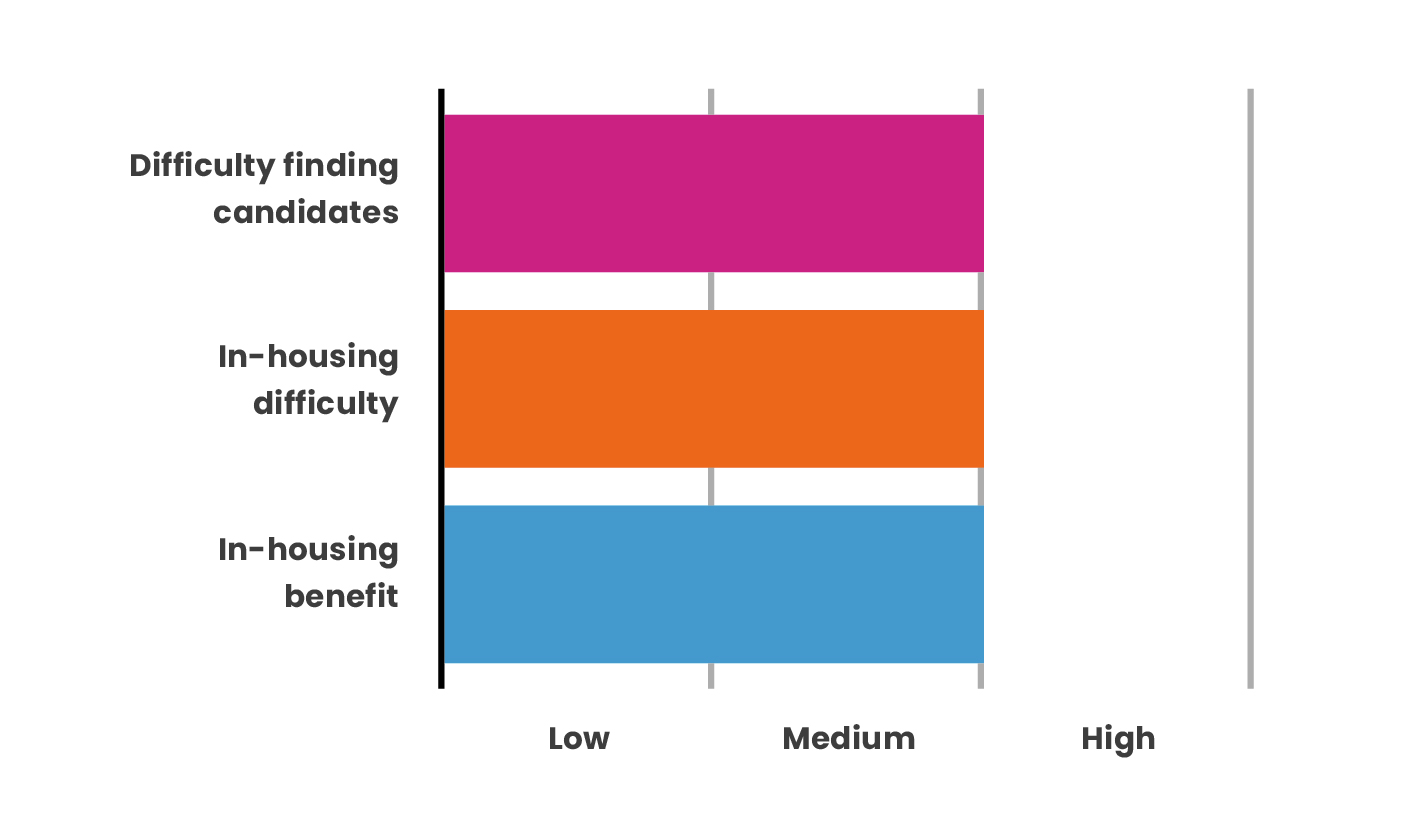
Wrap up
The digital marketing disciplines you choose to bring in-house will largely depend on the size of your organisation, the frequency of the various activities and the talent you can recruit.
Each of these disciplines can be fully managed by an agency, brought in-house or a blend of the two.
For example, digital advertising creative could be designed in-house, but the campaigns could be run by an agency. Content strategy could be developed by an agency, but executed by an in-house writer or team.
There is never a point of no return; whatever options you choose for your business should be the right ones, but if your situation changes in the future you can react accordingly.
If you need a fresh perspective or a helping hand on in-housing, please drop us a line.
Keep learning with Fresh Egg
Read our other blog posts about in-housing your digital marketing:
- Should you rely on digital marketing agencies or bring disciplines in-house?
- In-house vs agency: How to transition to a hybrid model
- How to recruit the best digital marketing talent for your in-house team
- How to set your in-house digital marketing team up for success
- Four ways to create a culture of innovation within your in-house digital marketing team
Join our email list like thousands of other marketing professionals to get updates on key industry changes, early access to free resources and exclusive invitations to Fresh Egg events in your inbox.